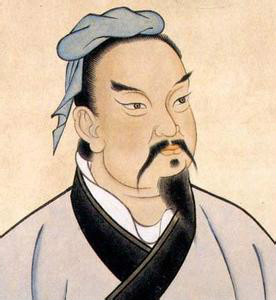Sun Tzu, the Chinese philosopher and military strategist from the 5th century BCE, wrote the following:
If, in the temple before waging war, your calculations indicate that victory is likely, it is because your calculations are more thorough than those of the enemy. If they indicate defeat, it is because they are less thorough. With many calculations, one can win; with few, one cannot. How much less chance of victory has one who makes no calculations at all! By examining this, I can foresee who will win and who will lose.”
Source: Sun Tzu, The Art of War, translated by Lionel Giles (1910), Chapter 1, “Laying Plans.”

Qing-era
Engaging in such calculations (as Sun Tzu urges) to evaluate different strategies and their likelihood of success requires prior work that should not be underestimated. It involves gathering as much information as possible from various angles and viewpoints, taking into account the multiple elements and stakeholders—or “actors”—which can be numerous.
In the case of a commercial strategy, we can group these actors into five main categories:
The Field (Terrain): The current market, our prospects and clients, their stated and hidden needs (both primary and secondary), their own business dealings and strategies, their loyalty, and past transactions. In other words, everything relating—directly or indirectly—to our prospects and clients.
Time: Our speed of execution compared to that of our competitors, sales cycles, our ability to quickly develop new products or services, etc. Experience shows that the time factor is very often underestimated.
The Environment: Economic and monetary policies (national and global), transportation costs, social context, cultural norms, and so on—any external factors over which we have no control.
The Actors (Market Competitors): Their strengths and weaknesses, threats and opportunities, and the strategies they might employ (game theory, rational or irrational actors, one-off or repeated interactions), as well as third parties (governments, regulators, standards bodies, political movements).
The Company Itself: Organization and leadership, morale, adaptability, resource management, strengths and weaknesses, opportunities and threats.
Sun Tzu already referenced these elements under different terms: heaven, earth, command, organization and logistics, moral law, knowledge of the enemy, adaptability, and the economics of war.
If there are not enough simulations and scenarios considered, victory becomes simply impossible. Certainly, not all scenarios are always examined for every new opportunity; we often assess them unconsciously. For example, we decide to respond to a request for a proposal when we already know—based on experience—that we have superiority over our competitors. In such cases, we do not need to evaluate many hypotheses. However, this approach can only be valid for a limited time.
It is therefore prudent to question whether our competitors will develop new products or services, or whether they have identified a new need that might undercut our competitiveness. Sooner or later—and often sooner than expected—things change. Many enterprises have seen their fortunes disrupted by the arrival of a single new factor in the success equation.
Thus, increasing knowledge of these main categories, combined with deeper anticipation of their possible developments over time, will allow us to evaluate the different hypotheses and define the most appropriate strategy—whether commercial or corporate—to maximize the chances of winning.
